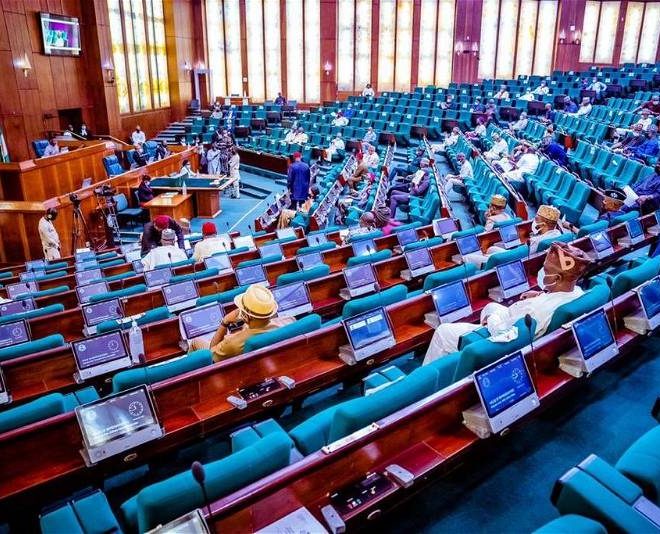Reps Demand Appearance Of Solid Minerals Minister, Cadastre DG Over Illegal Mining
•By Admin
ABUJA – THE House of Representatives Committee on Mineral Exploitation, Security and Anti-Money Laundering has issued summons to the Minister of Solid Minerals, Dr. Dele Alake, and the Director-General of the Nigeria Mining Cadastre Office, directing them to appear before the panel over issues relating to illegal mining activities nationwide.
The directive was announced on Wednesday by the Committee Chairman, Hon. Sanni Egidi Abdulraheem, during the continuation of the Committee’s investigative session.
Abdulraheem expressed displeasure over the poor cooperation received so far from some Ministries, Departments and Agencies (MDAs), particularly the Ministry of Solid Minerals and the Mining Cadastre Office, despite what he described as the Committee’s cordial approach.
“In spite of our friendly disposition toward these MDAs, especially the two key government bodies at the centre of this exercise, the level of cooperation received has been far from encouraging,” he said.
He disclosed that the Committee Secretariat has been instructed to formally communicate with the minister and the DG of the Mining Cadastre Office to appear before the lawmakers on scheduled dates, preferably alongside the EFCC and other anti-graft agencies.
According to him, the Committee’s work plan also includes oversight visits to all agencies within its jurisdiction, on-the-spot inspections of mineral exploitation sites across the country, and further engagements with selected MDAs before submitting its findings to the House.
Outlining the Committee’s mandate, Abdulraheem noted that the House expects the panel to:
Undertake a thorough investigation into the extent, actors, methods, and consequences of illegal mineral exploitation across the country, including associated revenue losses.
Assess the roles, operations, and challenges of security agencies deployed to mining areas, such as the NSCDC, Mining Marshals and other relevant formations, and evaluate their capacity to safeguard mining locations and national assets.
Probe the security fallout of illegal mining, including ties to organised crime, communal clashes, environmental destruction, and threats to national security.
Review the existing legal and regulatory framework guiding mineral exploitation, identify lapses or overlaps, and propose necessary amendments or fresh legislation.
Trace financial transactions linked to illegal mining, uncover the channels through which illicit proceeds are laundered, hidden, or transferred, and identify the individuals or networks involved.
Collaborate with relevant institutions, including the Ministries of Solid Minerals and Mines and Steel Development, NFIU, EFCC, security agencies, state governments, traditional rulers, and licensed operators—to obtain documents, data, and expert insights.
Evaluate the effectiveness of current anti–money laundering safeguards in the solid minerals sector and propose stronger compliance and enforcement mechanisms.
Recommend measures to curb revenue leakages, promote transparency in the mineral value chain, and ensure that the sector contributes legitimately and significantly to national development.
Organise public hearings and stakeholder consultations to enhance transparency and build national consensus on tackling illegal mining and its security and financial risks.
Submit a comprehensive report to the House within the allotted timeframe, detailing its findings, conclusions and recommended policy, legislative, administrative and security actions.
He added that the Committee would also perform any additional responsibilities assigned by the House in pursuit of its mandate.

